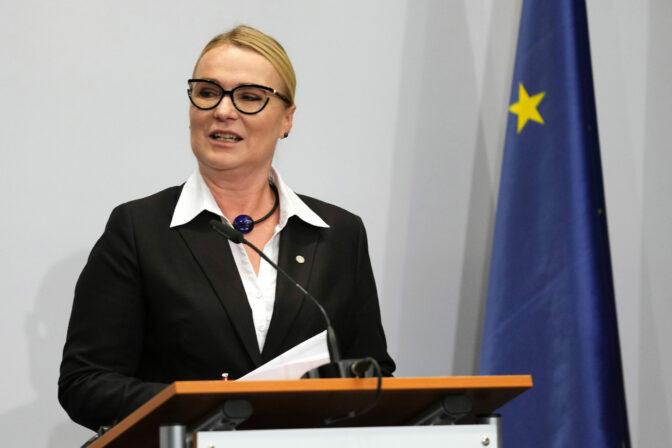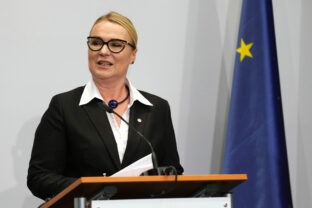BRATISLAVA, February 23, (WEBNOVINY) — Minister of Finance Ivan Miklos finds the Competitiveness Pact, which the biggest euro economies have come up with to be a good idea but he insists it cannot be accepted as a whole. He thinks that the major problem would be harmonization of the tax base for corporate profits. “We basically agree with these measures and support this activity although we have some reservations,“ Miklos told a news conference on Wednesday.
Miklos does not see a problem with measures including unified wage indexing, mutual acknowledgment of qualifications, fixation of the pension system to demographic development, creation of national crisis mechanisms for banks or incorporation of a debt-brake system in constitutions of member states. The Slovak government is even initiatively drawing up some changes on the national level in these spheres. The example is the debt brake, approval of which in form of a constitutional law the government is to discuss with the opposition.
The Finance Ministry and the government do not oppose to introduction of a bank levy, claims Finance Minister Ivan Miklos. He said at the Wednesday’s news conference that they want to proceed in coordination based on discussions within the European Union. The bank tax might become reality as of next year. “The result of these discussions should be a directive as of next January introducing bank fees. We want that this money be used in special funds for covering potential restructuring or bailout of banks,” Miklos stated.
A change to the key based on which euro club members will contribute to the new permanent European Stabilization Mechanism (ESM), supposed to replace the existing European Financial Stability Facility (EFSF) as of 2013, is Slovakia’s fundamental condition. Finance Minister Ivan Miklos further announced at a news conference midweek that Slovakia was aware of the need for cohesion and solidarity in the eurozone and was ready to participate in the permanent mechanism provided that the key is adjusted.
The key used as the basis for the existing bailout fund is illogical and unfair, Miklos claims. Contributions of individual countries to the temporary mechanism have been calculated from their portions on the ECB share capital, which caused that poorer countries provide more money than wealthier states in proportion to the economic strength. The minister opines that the key should be set on the basis of the country’s economic strength. The calculation of the contribution could also take into account indicators such as the strength of the financial sector or the country’s gross debt.
SITA












